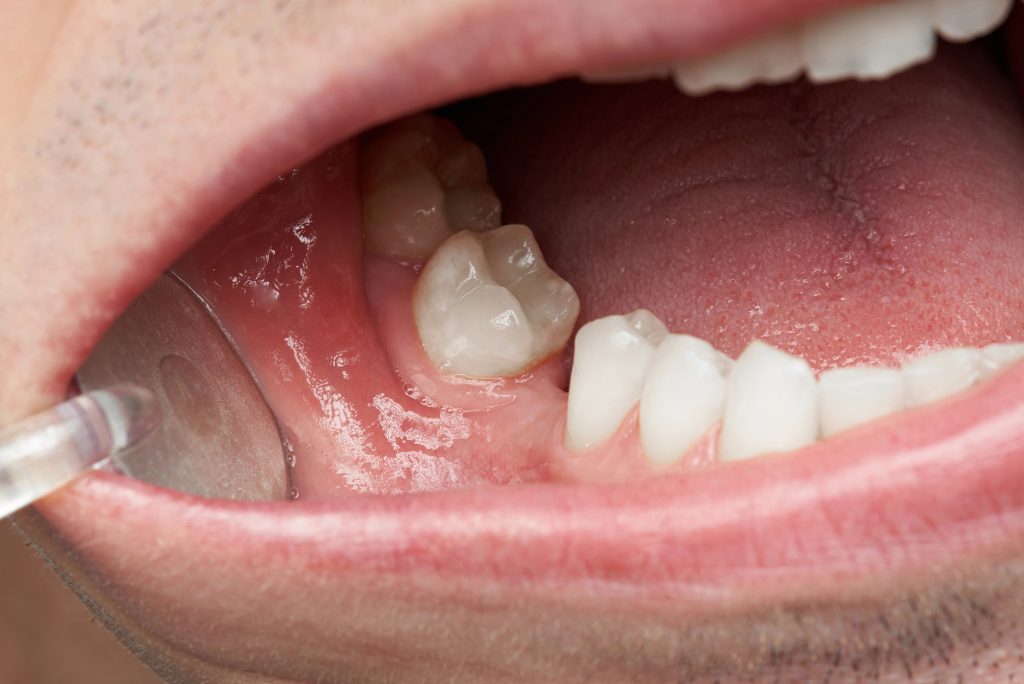
When it comes to replacing a missing tooth, two of the most effective and popular options are a dental bridge and a dental implant. Both options can be a great choice, but they are quite different.
Understanding the pros and cons of each is the first step toward making an informed decision that best suits your health, lifestyle, and goals.
What is a Dental Bridge?
A traditional dental bridge is a fixed restoration that “bridges” the gap left by a missing tooth. It consists of an artificial tooth that is supported between two dental crowns affixed to healthy teeth on either side of the gap, anchoring the bridge securely in place. To prepare for a bridge, the two adjacent teeth (abutment teeth) must be reshaped to accommodate the crowns.
The Pros of a Dental Bridge
- Fast Treatment Time: The process of getting a dental bridge is typically quicker than that of an implant. It usually takes just a couple of weeks and typically only two visits for initial preparation, then final placement.
- Less Invasive: A bridge does not require surgery, which can be an appealing factor for patients who are not suitable candidates for surgery or wish to avoid it.
- Lower Upfront Cost: Initially, the cost of a dental bridge is often lower than the cost of a dental implant, making it a more budget-friendly option for some patients.
The Cons of a Dental Bridge
- Impact on Healthy Teeth: The biggest drawback of a bridge is that it requires the permanent alteration of the adjacent healthy teeth. A significant amount of enamel must be removed to fit the crowns, which can increase the risk of future issues with these teeth.
- No Bone Stimulation: A bridge rests on top of the gums and does not stimulate the jawbone underneath. Over time, this lack of stimulation can lead to bone loss, which may affect your facial structure.
- Shorter Lifespan and Maintenance: Bridges typically have a lifespan of 5 to 15 years and may need to be replaced. They also require more diligent cleaning, as it can be tricky to floss the area.
What is a Dental Implant?
A dental implant is designed to mimic a natural tooth from root to crown. The process involves surgically placing a small titanium post into the jawbone, which acts as a new tooth root. Over a few months, this post fuses with the bone in a process called osseointegration. Once healed, a custom-made crown is attached to the implant, creating a durable and natural-looking replacement.
The Pros of a Dental Implant
- Preserves Healthy Teeth: A dental implant directly replaces only the missing tooth. It does not require any alteration or involve the adjacent teeth, leaving your healthy tooth structure completely intact.
- Prevents Bone Loss: Because the implant post acts as a new tooth root, it stimulates the jawbone just like a natural tooth. This prevents the bone deterioration that occurs when a tooth is missing, helping to maintain your facial structure.
- Long-Term Durability: With proper care, dental implants are a permanent solution that can last a lifetime.
- Natural Look and Feel: An implant looks, feels, and functions just like a natural tooth. You can eat, speak, and smile normally, and care for it with simple brushing and flossing.
The Cons of a Dental Implant
- Longer Treatment Process: The entire implant process can take several months from start to finish to allow for the healing and bone-fusion period.
- Requires Surgery: The placement of the implant post is a surgical procedure. While it is a common and safe procedure, it is more invasive than getting a bridge.
- Higher Upfront Cost: The initial investment for a dental implant is typically higher than for a bridge. However, its longevity often makes it the more cost-effective solution over a lifetime.
Making the Best Choice for Your Smile
The decision between a dental bridge and an implant is a personal one that depends on several factors, including your oral health, the number of missing teeth, your budget, and your long-term goals.
- A dental bridge might be a suitable option if you are looking for a faster, less invasive, and more affordable solution.
- A dental implant is often the preferred choice for its long-term health benefits, including the preservation of your jawbone and healthy teeth, and its exceptional durability.
Ultimately, there is no single “best” answer for everyone. The right choice is the one that restores your smile while aligning with your needs and personal preferences.
If you are not sure which is right for you or if you are ready to start your restoration, contact our office today to schedule a consultation.
